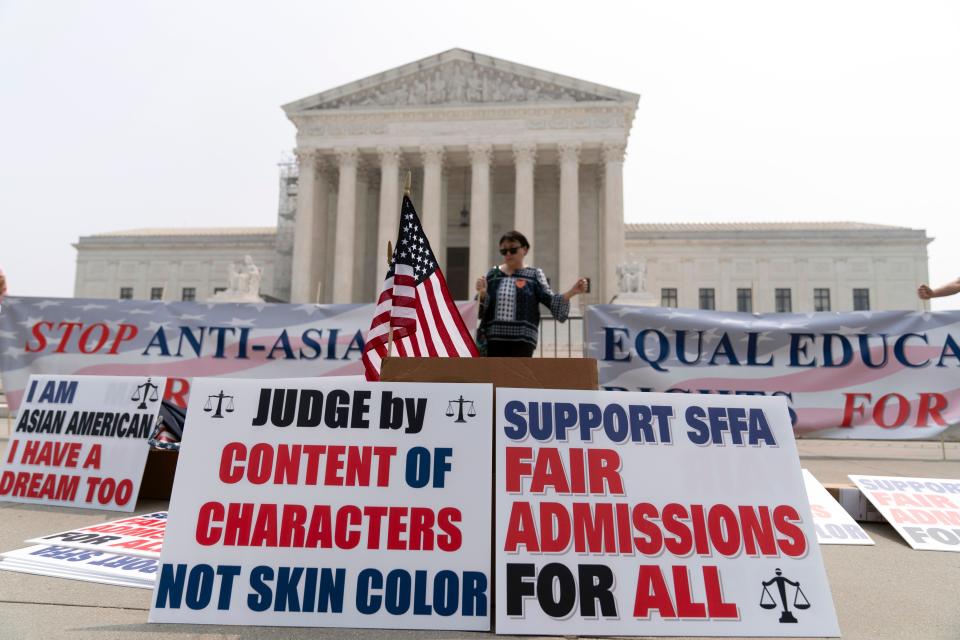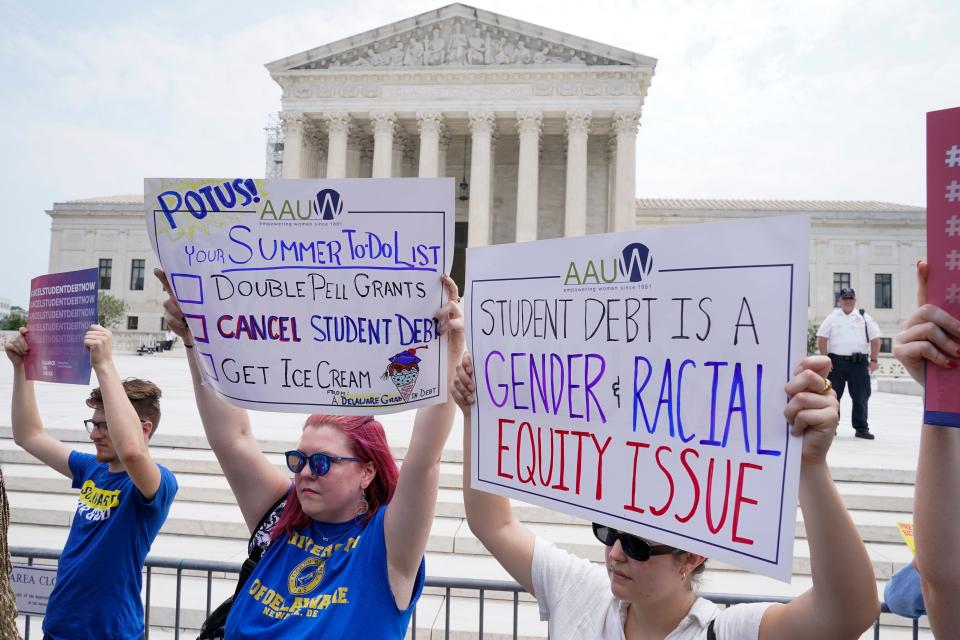Supreme Court rulings push back against big government | Opinion
- Oops!Something went wrong.Please try again later.
- Oops!Something went wrong.Please try again later.
- Oops!Something went wrong.Please try again later.
- Oops!Something went wrong.Please try again later.
- Oops!Something went wrong.Please try again later.
- Oops!Something went wrong.Please try again later.
- Oops!Something went wrong.Please try again later.
The United States Supreme Court sent shockwaves through the federal bureaucracy last week. It was a wonderful reminder, especially so close to Independence Day. By several decisions, they asserted that the founders charted the right course and the proponents of big government had navigated us far afield. Justices John Roberts, Clarence Thomas, Samuel Alito, Neil Gorsuch, Brett Kavanaugh and Amy Coney Barrett planted a flag for restraint.
The three opinions collectively should give everyone pause and new perspective to consider their actions through the eyes of James Madison, Alexander Hamilton and John Jay. They were on the side of a stronger federal government in 1787 pushing back against those who sought a weak and ultimately inefficient central government. But if they made their case for a strong centralized government in the Federalist Papers today, they would get pilloried as hateful, regressive and, in the words of today’s left, ultra MAGA.
The government championed by the founding fathers means to protect freedom, not to arbitrate it, choose sides, or otherwise limit personal liberty. Our Declaration of Independence was made by the colonies to separate from England, but it was also made on behalf of the people against tyranny however manifested − including from the government the founders intended to create out of the ashes. The Constitution sought to mold that ideal into workable government.
Madison, Jay and Hamilton’s work to encourage adoption of the Constitution − their Federalist Papers should be read by anyone who wants to comment about politics and government on social media. It’s sadly not a requirement, even among politicians and bureaucrats, and the Supreme Court’s decisions prove it.

First, the court struck down affirmative action in college admissions. The 14th Amendment’s Equal Protection Clause protects everyone from discrimination based on race, sex, ethnicity, religion, etc. At some point, the left decided that wasn’t good enough. Government became the only answer. Freedom isn’t the goal, they say. Equality is the goal. And the only way to achieve equality is for government to squash dissent and force corrective action (that is, "good" discrimination) upon its people. The Supreme Court rightly sided with Madison, Jay and Hamilton.
The court also reaffirmed free speech under the First Amendment. The government, the court ruled, cannot force a private citizen to hold or promote a view. If you don’t want to make a pride cake − you don’t have to do so. If the Kaepernick Bakery doesn’t want to make a flag cake, it too has the right to refuse. We all have the right to shop at whatever bakery we want. We can even call bakery owners names on social media. But the government doesn’t get to force its views on the people. Another win for restraint.
Finally, the court ruled that the President of the United States can’t ignore Congress. Congress requires students who take loans to pay them back. Joe Biden sought to bypass Congress and transfer much of that debt from the graduates to the American taxpayer. The separation of powers is a pretty fundamental concept in our system. President Biden would defend his position as necessary to help indebted college graduates, but it’s not necessary. Working within the bounds of the Constitution − practicing restraint − is necessary.

The problem with a big government ideology is that there are endless real and perceived injustices which seem to justify a governmental response. Restraint isn’t easy. It’s easy to make the case to use the government as a proactive tool − often a hammer. Each individual act by the government is an isolated strike on a nail in the name of equality, the little man, or whomever else is deemed the beneficiary. Taken together, it’s government-run-amok, and it sets us on the dark path towards tyranny.
One gets the sense that if a defense were mounted today of a strong federal government in the style of the Federalist Papers, it would require a self-labeled blue-ribbon, inter-agency commission of 100 people with appropriate sub committees. And they still wouldn’t get it right. We should be thankful for the justices of the Supreme Court, but we need even more Madisons, Jays, and Hamiltons today; or perhaps another Thomas Jefferson to write a Declaration of Restraint.
Matt Dole is a communications consultant who lives in Newark and works in Columbus.

This article originally appeared on Cincinnati Enquirer: Supreme Court rulings push back against big government | Opinion

